How Abacus fits the new 2022 Curriculum for Wales for Mathematics and Numeracy (with a focus on fluency and logical reasoning)
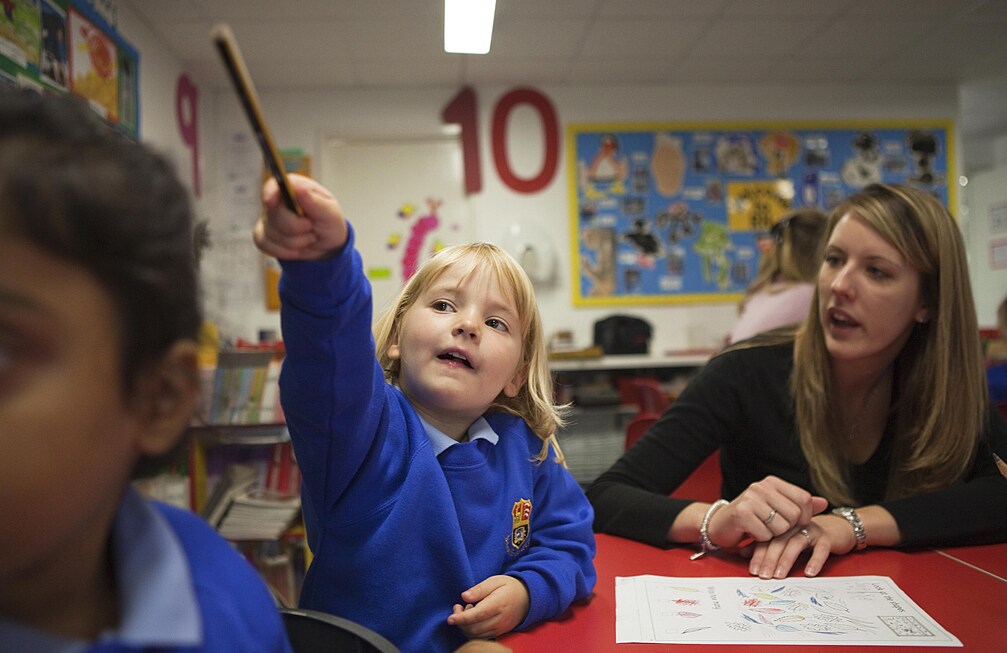
The 2022 Welsh curriculum in Primary schools
We know that the Welsh curriculum is changing in the new academic year in 2022 for all Primary schools, with Secondary schools to follow in 2023. When it comes to Mathematics and Numeracy in the new curriculum, there are five new Mathematical proficiencies for Welsh Primary schools:
- Conceptual understanding
- Fluency
- Communication with symbols
- Logical reasoning
- Strategic competence
In this blog we are going to look at how Abacus can be used to support the teaching of two of these proficiencies: fluency, and logical reasoning. There is no doubting that these two Mathematical areas are already being developed in Wales in the current curriculum, but the below is a reminder of the fantastic Abacus resources we have on offer to support these two skills.
Fluency
The new curriculum states that fluency is children ‘experiencing, understanding and applying Maths concepts, relationships and techniques and these facts becoming firmly established, memorable and usable’.
There are several resources you can use in Abacus to develop Mathematical fluency for your children:
1. Mastery Checkpoints
Advice here from our Abacus trainer in Wales (Louise Davies) is for teachers to display these on the interactive whiteboard and for children to write their answers on personal whiteboards. Recent advice which gained traction on social media around the use of personal or mini-white boards for tasks like this was to ensure all children put their boards up at the same time instead of allowing children to perhaps copy other children’s answers if they put their board up first. Techniques like show me your boards in 321, or chants to show the boards like ‘show me, show me, everybody show me’ – can help to ensure all children have ample time to complete the questions.
Abacus further recommends that you use these Mastery checkpoints after the lesson, perhaps after lunch time or the next lesson or the following week, to support children’s ability to retrieve the Maths concepts.
2. Five-minute fillers and Carpet Maths
The new Welsh curriculum talks of the need to create ‘ambitious and capable learners’ who are building up a body of knowledge and have the skills to connect, and are able to apply that knowledge in different contexts. The fluency skills developed in Abacus allow children to keep those skills on the boil. Fluency in Five activities allow you as the teacher to rehearse key skills during the lesson or at the start of a lesson.
Carpet Maths (for Reception – see below) also offer the opportunity to consolidate prior learning and maintain that fluency that we are looking for. Ruth Merttens (the Series Editor for Abacus) has spoken about the effectiveness of Carpet Maths to support memorisation and she suggests using these activities at different times of the day outside of your Maths lesson.
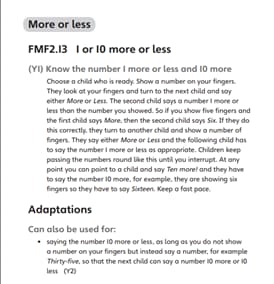
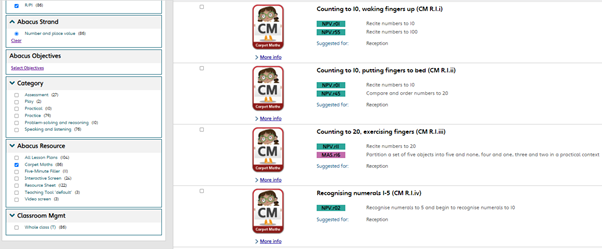
3. Fluency Fitness activities
Fluency Fitness activities are for Key Stage 2. The PowerPoints have two slides, one with the answers on. They are also editable, so you can adjust them to your children’s needs.
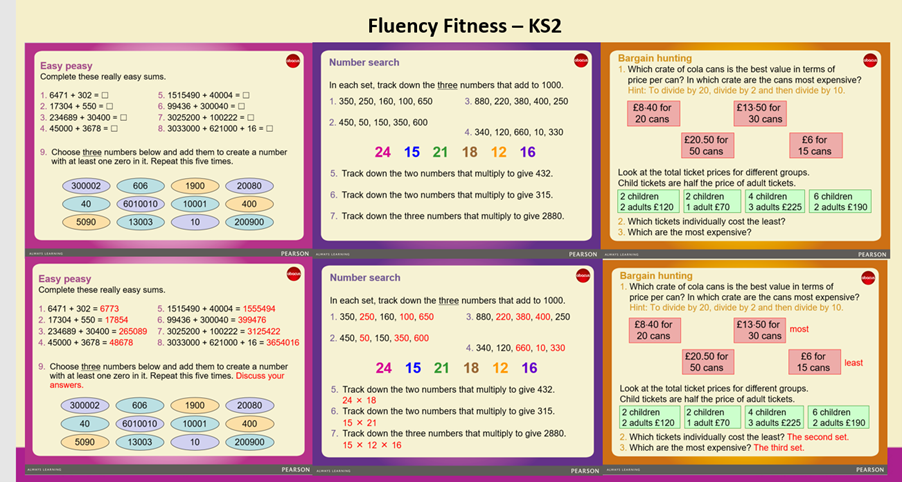
4. Logical reasoning
When it comes to logical reasoning, this is what the new curriculum for Wales says: 'They (children) should apply logical reasoning about these relationships and be able to justify and prove them. Justifications and proof should become increasingly abstract, moving from verbal explanations, visual or concrete representations to abstract representations involving symbols and conventions'.
Louise Davies spoke of the importance of using manipulatives in a recent Abacus webinar and suggested using the interactive teaching tools in Abacus to show pictorial representations, but at the same time she stressed the need for children to use concrete manipulatives in the classroom and for teachers to follow the CPA (Concrete-Pictorial- Abstract) approach.
5. Problem-solving investigations
We have these problem-solving investigations for years 1-6. They are word problems, and they are in word documents so they can be edited by the teacher to best suit their learners.
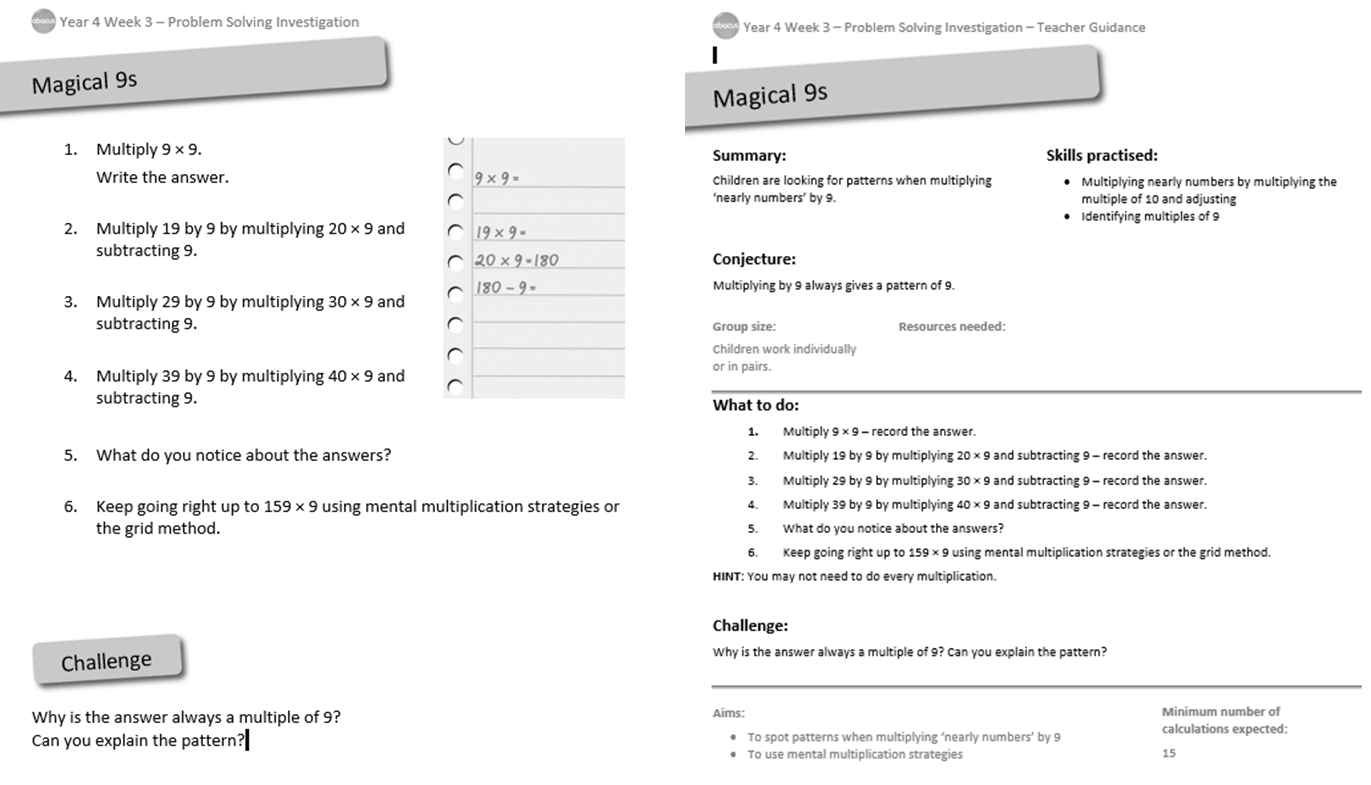
6. Nrich
Nrich activities are fantastic to focus on problem solving and logical reasoning. They are creative activities which really get children using Maths in real-life ways.
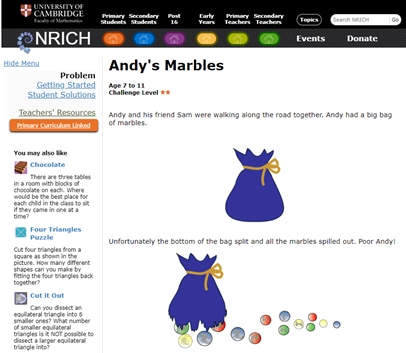
Thank you for reading this blog on how Abacus fits the new Welsh curriculum for fluency and logical reasoning. For more information, watch the recording of our webinar we ran on this topic.
We’d love to hear your ideas and find out about what has worked best in your class! How you are developing these two skills in your school or your class? Let us know by email.